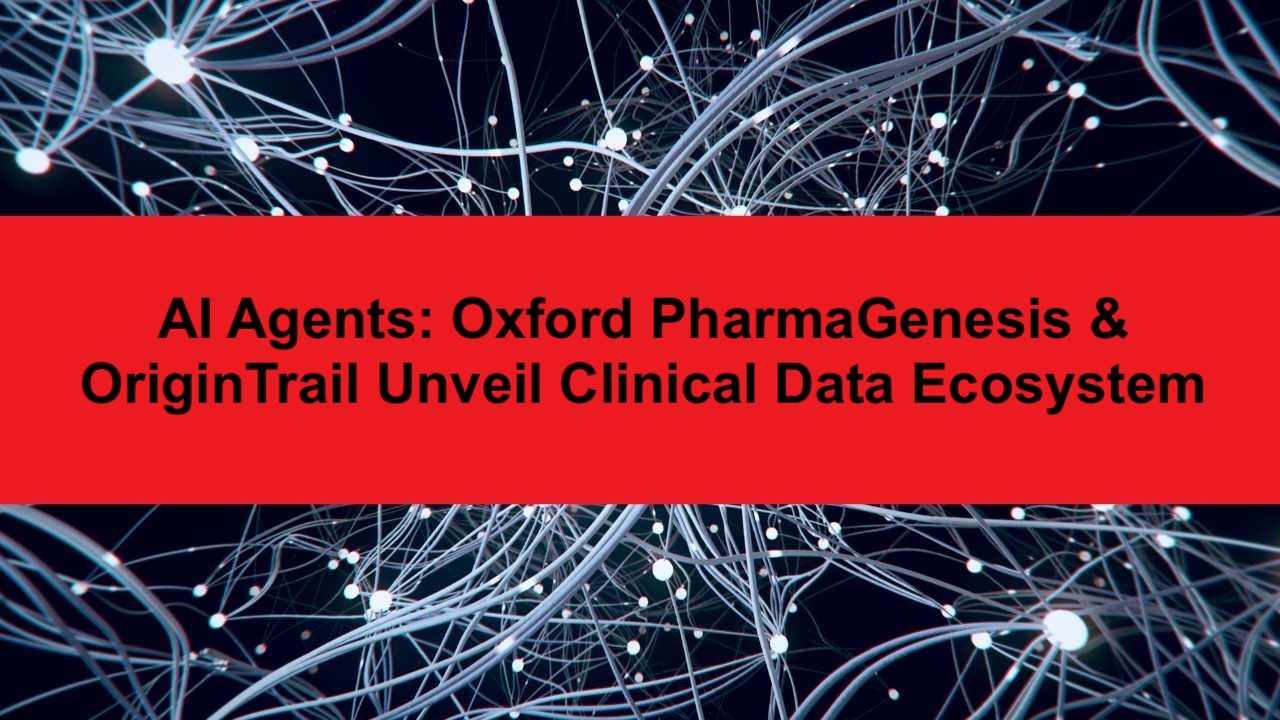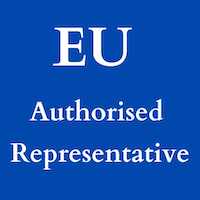AI Agents: Oxford PharmaGenesis & OriginTrail Unveil Plan for Clinical Ecosystem
Oxford PharmaGenesis, a leading HealthScience consultancy, and Trace Labs, the software company behind the Decentralised Knowledge Graph (DKG), have announced a partnership to pioneer a collaborative, agentic clinical data ecosystem. The initiative aims to accelerate scientific discovery, improve transparency, and unlock new ways for artificial intelligence to access and use trustworthy medical data.
“The collaboration begins with a pilot, which will link together publicly available information from multiple medicines produced by a global pharmaceutical company. It will create the blueprint for rapid expansion to additional contributors through a structured, incentivized data-sharing program that will form a domain-specific paranet within the OriginTrail DKG.”
Extract of the announcement by Origin Trail and Oxford PharmaGenesis
The announcement of the partnership does not go into detail on what they will build. But we can explore different scenarios based on the press release:
Publicly Available Information in the Pilot
According to the announcement by Oxford PharmaGenesis and Origin Trail, the pilot will utilise publicly available data to ensure feasibility, transparency, and alignment with open science principles. Clinical data which are publicly available include:
- Clinical Trial Registrations: Data from platforms like ClinicalTrials.gov, including trial designs and objectives.
- Clinical Study Report Synopses: Publicly shared clinical study report summaries from regulatory submissions.
- Peer-Reviewed Publications: Articles published in scientific journals detailing trial results and insights.
- Regulatory Summaries: Documents from agencies like the FDA or EMA, outlining drug approvals and safety profiles.
- Trial Protocols and Statistical Plans: Publicly disclosed study methodologies and analytical frameworks.
- Real-World Evidence: Aggregated data from real-world studies, such as patient outcomes or drug performance.
Likely Candidates for the Global Pharmaceutical Company
The identity of the global pharmaceutical company involved in the pilot is undisclosed, but based on Oxford PharmaGenesis’ client relationships, transparency commitments, and the scope of publicly available data, the following are the top candidates:
- Pfizer
- Rationale: A major client of Oxford PharmaGenesis (e.g. Ibrance), Pfizer is a major contributor to clinical trial data sharing initiates. Its commitment to Open Pharma and extensive portfolio in oncology and vaccines make it a strong fit.
- Relevant Data: Public trial data for Ibrance.
- AstraZeneca
- Rationale: A key client for Oxford PharmaGenesis (e.g., Tezepelumab/Tezspire), AstraZeneca is a leader in open science, particularly in oncology and respiratory drugs. Its U.K. base aligns with Oxford PharmaGenesis’ headquarters.
- Relevant Data: Trial data for Imfinzi, Tagrisso, or Tezspire.
- Takeda
- Rationale: A long-term client (e.g., for Entyvio), Takeda has a global presence and participates in data-sharing initiatives, particularly in gastroenterology and oncology.
- Relevant Data: Trial data for Entyvio or Adcetris.
- Novo Nordisk
- Rationale: A client for Oxford PharmaGenesis (e.g., for Icodec), Novo Nordisk is a leader in diabetes and obesity research with significant public trial data.
- Relevant Data: Trial data for Ozempic or Icodec.
Other Potential Candidates: Novartis, Roche, and Ipsen are also viable due to their global reach and public data-sharing practices.
How would it work?
There are no specifics on functionality, but here is an outline of how it could potentially work if Pfizer is the ‘global pharmaceutical company’ mentioned in the press release:
- Contribute Data: Pfizer uploads trial data for Ibrance (palbociclib) to the clinical data ecosystem – or “paranet”. The data is formatted in the standardised way (to be determined) and cryptographically signed (ownership is verified).
- Read Data: Researchers and healthcare professions submit information requests through a dedicated DKG portal. AI agents read the data to produce a plain-language summary.
- TRAC Rewards: Node operator receives TRAC tokens for its contribution (maintaining the node). More on this later.
- Expansion: AstraZeneca and Takeda join, contributing data for Tagrisso and Entyvio, respectively, scaling the paranet’s scope and utility.
Oxford PharmaGenesis “structured, incentivized data-sharing program”
What do they mean by this? While specific details of the program are not fully disclosed, we can speculate that it would be a carefully designed framework to encourage pharmaceutical companies, regulators, and other stakeholders to contribute their clinical trial knowledge to the medical data paranet.
Key Components of the Oxford PharmaGenesis & Origin Trail medical ecosystem
- Structured Framework for Data Contribution (how data to be added is structured)
- Data Types: The pilot will focus on publicly available clinical trial data such as trial registrations and clinical study report synopses. In later phases, it may include patient-level data under controlled access.
- Standardised Formats: Data from all contributors will be formatted into the same machine-readable structures compatible with the OriginTrail DKG, using standards like JSON-LD or RDF to ensure interoperability and discoverability.
- Contribution Process: Contributors (pharmaceutical companies, academic institutions, etc.) will use secure, intuitive tools (likely web-based interfaces or APIs) to upload clinical data to the DKG.
- Incentivisation: To encourage participation, the program will offer incentives to pharmaceutical companies and other stakeholders. Likely incentives include:
- Reputation and Transparency: Contributing to a trusted, open knowledge pool enhances a company’s reputation for transparency.
- Access to Insights: Contributors gain access to aggregated, anonymised insights from the DKG, such as trends in clinical outcomes or real-world evidence, which can inform R&D or market strategies.
- Token-Based Rewards: The OriginTrail ecosystem uses the TRAC token to incentivise data sharing in its network. Contributors may receive TRAC tokens for uploading verified data.
- Collaborative Opportunities: Contributors may gain priority access to partnerships with other stakeholders in the paranet, such as academic researchers or patient groups, fostering collaborative research.
- Operational Framework:
- Onboarding Process: The pilot will onboard one major player (e.g., Pfizer) to help design, build and test the system, with a clear roadmap for scaling to additional contributors. Other pharmaceutical companies will be invited to join the paranet through a formal onboarding process, likely managed by Oxford PharmaGenesis due to its paranet founder status.
- Verification and Security: The DKG uses cryptographic technology to ensure data integrity, with each contribution cryptographically signed to verify ownership. Smart contracts may automate validation.
- Access Control: While the pilot focuses on public data, the final program will need robust safeguards if sensitive data is to be shared.
- AI Agents: The paranet is compatible with AI agents to consume and produce knowledge, generating insights for the researcher, healthcare professional.
- Governance Model: A governance framework, possibly overseen by a consortium including Trace Labs, Oxford PharmaGenesis, and key contributors, will define rules for data type, structure quality, contribution criteria, and incentivisation. This ensures the paranet remains trusted and scalable.
- User-Centric Insights:
- The program will produce tailored insights for various stakeholders:
- Researchers: Structured datasets for meta-analyses or systematic clinical reviews
- Healthcare Professionals: Summaries of clinical evidence for decision-making
- Patients: Plain-language summaries making trial results understandable and actionable
- Public: General insights into medical advancements, combating misinformation with verified data.
- The program will produce tailored insights for various stakeholders:
What is a ‘paranet’?
A paranet is essentially a sub-network. A network within a network. In the case of the medical DKG ecosystem, it is a network of interconnected nodes (holding the clinical data) within the larger DKG network – or ecosystem. Other paranets exist in the DKG servicing different initiatives (supply chain, transport etc). Only members of a paranet – or those with permission – can get access to contribute or read the data.
There are likely to be different tiers of membership:
Founders: Top-level, those that have developed the paranet
Contributor Pharmaceutical companies/Individuals: Parties contributing data to the paranet
Readers: Those reading the data (via AI Agents). They could be other pharmaceutical companies, clinical consultancies, regulators, researchers, healthcare professionals.
What to learn more about the Origin Trail DKG?
Click here to learn more about the DKG and sign up to video guides (update to our online course is out soon!).



Comments are closed here.